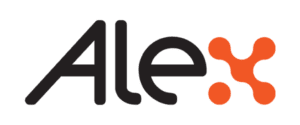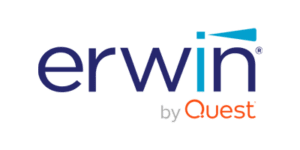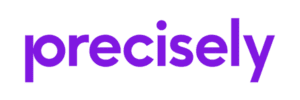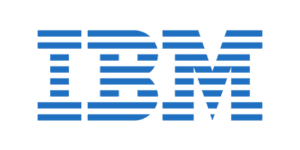Data catalog software solutions are geared to handle critical data management and retrieval issues. For large enterprises that have a data lake or other big data initiative, just figuring out what data the company has available can be extremely challenging – which is a a major function of data catalogs.
Most modern data catalog tools rely heavily on artificial intelligence (AI) and machine learning (ML) capabilities. Often ML provides a score that shows how reliable data is. ML in data catalogs can also provide other types of recommendations and enable some basic analytics.
For more information, also see: Data Management Platforms
Table of Contents
- Data Catalog Software Comparison Chart
- Alation: Best for Behavioral Intelligence
- Alex Solutions: Best for Metadata Management
- Collibra: Best for Cloud Products
- Data.World: Best for Understanding Company Data
- Erwin: Best for Data Modeling
- Google Cloud Data Catalog: Best for Data Security
- Lumada Data Catalog: Best for Lineage Analysis
- Infogix Data360 Analyze: Best for Automation
- Informatica: Best AI Capabilities
- IBM: Best for Flexibility
- Data Catalog Software Key Features
- How to Choose Data Catalog Software
- Should You Use Data Catalog Software
- Bottom Line: Data Catalog Software
Data Catalog Software Comparison Chart
| Software | Key Features | Cons | Cost |
| Alation |
ML capabilities Collaboration features |
Expensive
|
Pricing is available on request |
| Alex Solutions |
Excellent lineage profiling Broad capabilities |
Challenging integration
|
Pricing is available on request |
| Collibra |
Strong partner ecosystem Good complex environments |
Cloud only | Pricing is available on request |
| Data.World |
Public benefit corporation Easy to use |
Limited integration | Pricing is available on request |
| Erwin |
Broad data governance capabilities Good data modeling capabilities |
High pricing | Pricing is available on request |
| Google Cloud Data Catalog |
Highly scalable Integration with other Google Cloud software |
Doesn’t integrate with other data sources | Storage for up to 1 MiB per month is free and costs $100 per GiB per month beyond that. The first 1 million API calls are free, and after that they cost $10 per 100,000 API calls. New customers are also available for Google Cloud’s free trials and introductory credits. |
| Lumada Data Catalog |
Advanced ML and BI Excellent lineage analysis |
Limited connectors | Pricing is available on request |
| Infogix |
Wide range of features Quantifies data value |
Could use better documentation | Pricing is available on request |
| Informatica |
Integration with other tools Metadata intelligence engine |
High TCO | Pricing is available on request |
| IBM |
Integration with other IBM products Flexible deployment options |
Challenging deployment | Pricing is available on request |
Best Data Catalog Software
A data catalog software automates the discovery of data sources throughout an enterprise’s systems. It has capabilities to organize that data, show the relationships among different pieces of data, enables search, and tracks data lineage, which is where the data originated.
See below for the top 10 data catalog software:
Alation: Best For Behavioral Intelligence
A pure-play data governance and data catalog vendor, Alation is a leader in the data catalog industry. Key features of the Alation Data Catalog include behavioral intelligence, seamless collaboration, guided navigation, data governance capabilities, and connections to popular big data and BI tools, as well as APIs and an Open Connector SDK. It also offers tailored solutions for finance, healthcare, insurance, manufacturing, retail, and technology companies. In addition, it has a large partner ecosystem that includes systems integrators, resellers, and complementary technology vendors.
Pricing:
Pricing is available on request. The company offers a weekly live demo, as well as the opportunity to request a demo.
Features:
- Behavioral intelligence: The tool learns a user’s use of data to give businesses more efficiency.
- Open Connector SDK: The tool allows the data catalog software to connect to any source that doesn’t currently have a pre-built connector.
- Guided navigation: The tool gives developers recommendations, flags, and policies to help users and businesses.
Pros:
- Good machine learning capabilities.
- Strong collaboration capabilities.
- Early pioneers of data catalog technology.
Cons:
- The tool can be very expensive.
Alex Solutions: Best for Metadata Management
Australia-based Alex Solutions describes its product as a metadata management solution that incorporates both data catalog and data governance capabilities. Alex offers a data catalog, business glossary, policy-driven data quality, intelligent tagging, technology-agnostic metadata scanners, and workflow capabilities. Its metadata management capabilities are useful for data inventory, enrichment, usage analysis, sensitivity detection, data lineage support, risk management, and more. Its ML capabilities are highly advanced, and it has an intuitive interface.
Pricing:
Demos and pricing are available on request.
Features:
- Business glossary: The business glossary simplifies the enterprise by putting all definitions, policies, metrics, rules, processes, and workflows.
- Technology-agnostic metadata scanners: policy-driven data quality combined with data lineage, data profiling, and machine learning-based intelligent tagging.
- Sensitivity detection: Alex Solutions’s product uses cybersecurity techniques to keep a user’s data safe.
Pros:
- Broad range of capabilities.
- Easy to deploy and use.
- Strong lineage profiling.
Cons:
- Needs better training for business users.
For more on metadata: Top Metadata Management Tools
Collibra: Best for Cloud Products
Collibra aims to make data meaningful with its Data Intelligence Cloud, Platform, Data Catalog, Data Governance, Data Lineage, and Data Privacy products. Collibra’s Data Catalog product includes wide-ranging native connectivity, ML-powered automation, data scoring, and embedded data governance abilities. Data catalog capabilities are also included in the company’s flagship Data Intelligence Cloud.
Pricing:
Pricing is available on request. Collibra offers a free trial as well.
Features:
- Scalable: A user can use programs that integrate data intelligence cloud platforms such as data catalog, governance, lineage, quality, and privacy capabilities into one.
- Secure cloud product: Collibra provides support for identity and access management, encryption, and network vulnerability testing, to ensure safe security techniques.
- Flexible connection: Collibra’s product can deploy on-premises, or in cloud environments to meet a company’s needs.
Pros:
- Strong data intelligence capabilities and graph technology.
- Good for large enterprises.
- Strong ecosystem of third partners and peer-support user groups.
Cons:
- Complex interface.
Data.World: Best for Understanding Company Data
Like many of the other vendors included in this list, Data.World is a pure-play vendor focused on data catalog capabilities. A cloud-native product, Data.World offers contextual data cataloging that includes metadata, dashboards, analysis, code, docs, project management, and social collaboration capabilities. It also incorporates knowledge graph technology and provides real-time integration capabilities. In addition, the company follows agile development processes, continually releasing updates and feature improvements.
Pricing:
Data.World offers a free demo for their customers.
Features:
- Understanding company data: Data.world’s knowledge-graph-powered data catalog offers a consistent, enterprise-wide understanding.
- Strong data governance: Offers more accurate business insights with Agile Data Governance, which enables organizations to curate well-informed data products.
- Scalability: A company needs a data catalog to adapt, change, and be able to represent all the different parts of their business.
Pros:
- Upfront pricing.
- Easy to use interface.
- Public benefit corporation devoted to providing social benefits, including providing free access to many datasets, supporting data journalism, and making education and community resources freely available.
Cons:
- Not as many third-party partners and integrations.
Erwin: Best For Data Modeling
Erwin focuses on products for the Enterprise Data Governance Experience (EDGE), including business process modeling, enterprise architecture, data modeling, data catalog, and data literacy. Erwin offers Data Catalog (DC) as a standalone product or as part of its Data Intelligence suite. Benefits of Erwin DC include a centralized data governance framework, a metadata-driven approach, accelerated project delivery, increased data quality, regulatory compliance, and accurate analytics. It includes a metadata manager, mapping manager, reference data manager, lifecycle manager, business data profiling, and data connectors.
Pricing:
For Erwin’s Data Intelligence and Data Catalog products, you will need to contact a representative. A free trial is available.
Features:
- Centralized data governance framework: The framework offers accurate analytics, data literacy, and more.
- Data modeling: The tool helps a company discover, compare, and use models to migrate data to new database management systems and platforms.
- Enterprise Architecture Solutions: The solutions provide one source of truth about the enterprise and how it operates.
Pros:
- Broad range of data governance capabilities.
- Great data modeling.
- Strong ecosystem of customers, partners, and resellers.
Cons:
- Expensive.
For more on data modeling: Types of Data Models & Examples: What Is a Data Model?
Google Cloud Data Catalog: Best for Data Security
Part of Google Cloud’s Dataplex, Google Cloud Data Catalog is a fully managed cloud service with data discovery and metadata management capabilities. Key features of the service include serverless architecture, metadata as a service, a central catalog, search and discovery, schematized metadata, cloud DLP integration, on-prem connectors, cloud identity, and access management (IAM) integration and governance capabilities. It offers a faceted-search interface, metadata syncing and tagging, easy scalability, and integration with cloud data loss prevention (DLP) and other Google Cloud services.
Pricing:
Pricing is available on their website.
Features:
- Technical and business metadata: Google Cloud Data Catalog supports data-driven decision-making and accelerates insight time by enriching data.
- Unified view: Users can gain a unified view to reducing time while searching for the right data.
- Cloud Data Loss Prevention (DLP): Data Catalog can use the Cloud Data Loss Prevention (DLP) scan to identify sensitive data directly within Data Catalog.
Pros:
- Integration.
- Scalability.
- Affordability.
Cons:
- Difficult to estimate the total cost as needed.
For more on Google Cloud’s Dataplex: Google Cloud Launches Unified Data Platform with Analytics Hub, Dataplex and Datastream
Lumada Data Catalog: Best for Lineage Analysis
Hitachi Vantara’s Lumada Data Catalog offers very advanced machine learning and behavioral intelligence capabilities. It promises faster data tagging and includes features like AI-driven discovery, end-to-end data lineage, self-service data access, sensitive data management, and cross-functional collaboration.
Pricing:
Pricing is available on request. Hitachi Vantara offers a “Try Hands On Experience.”
Features:
- AI-driven discovery: Lumada Data Catalog offers data fingerprinting to automate the discovery and classification of structured, semi and unstructured data.
- Business rules: The tool allows users to validate data against business rules to assess conformity to business policies.
- End-to-end lineage analysis: The tool allows companies to find hidden lineage to trace data back to original sources.
Pros:
- Advanced ML and behavioral intelligence features.
- Helpful lineage analysis capabilities.
- Interface is user-friendly.
Cons:
- Not many connectors to third-party applications.
For more on data analytics: 5 Ways Brands Underutilize Data Analytics
Infogix Data360 Analyze: Best for Automation
Infogix Data360 Analyze, now part of Precisley’s Data360 portfolio, includes data catalog, data governance, data quality, and data analytics capabilities. Key data catalog features in Data360 Analyze include automated metadata management, machine learning-based search and discovery, smart business glossary, data lineage, impact analysis, and more. It integrates with the other Precisely Data360 products, and the company also offers professional services, training, and support.
Pricing:
A demo and pricing are available on request.
Features:
- Data Transformation: The products help companies prepare, cleanse and blend data to create data sets for analysis.
- Data Integration: This lets users acquire data in multiple formats and combine, reconcile, and restructure data.
- Automation: The product can operationalize multiple steps needed to process data based on a variety of triggers.
Pros:
- Wide range of data intelligence capabilities.
- Helps organizations quantify the value of their business data and manage data assets.
- Easy to use.
Cons:
- Could use better documentation.
Informatica: Best AI Capabilities
One of the most well-known data catalog vendors, Informatica offers an Intelligent Data Platform that incorporates a wide range of cloud-based enterprise data management products. Informatica’s Enterprise Data Catalog provides enterprise-wide data discovery capabilities that make use of AI technology. It provides a holistic view of data within its business context. Key features include AI-powered automation, data provisioning, end-to-end data lineage, integrated data quality capabilities, and collaboration abilities.
Pricing:
Pricing is available on request.
Features:
- Catalogs all data: Users can use AI-powered automation to discover, inventory, and organize their data assets.
- Unified view: A unified view adds rich context to a user’s data by giving a single view of enterprise metadata.
- Data into insights: A business can find and prepare data by using AI/ML applications for insights.
Pros:
- Data Catalog service is helpful for enterprises.
- Great metadata intelligence engine.
- Scalable.
Cons:
- Expensive for some companies.
IBM Watson Knowledge Catalog: Best for Flexibility
IBM Watson Knowledge Catalog can be deployed on the IBM Cloud or a private cloud through IBM Cloud Pak for Data. Noteworthy features include intelligent discovery recommendations, an end-to-end catalog, automated data governance, data lineage, quality scores, and self-service insights. It also includes data quality, collaboration, and compliance capabilities.
Pricing:
For pricing, go to the IBM Cloud pricing page. There are two options for a Free Trial and booking a consultation on IBM Watson Knowledge Catalog’s main page.
Features:
Operationalized quality: A company can track lineage and quality scores across all data, AI models, and notebooks.
End-to-end catalog: The tools can organize, define, and manage enterprise data to provide the right context and drive value.
Global search: The global search bar is available 24/7, no matter where users are in the navigation or what content they are working on.
Pros:
- Integrates well with other IBM products.
- Cloud Pak for Data deployment option is good for large, complex ecosystems.
- Upfront pricing.
Cons:
- Deployment can be difficult.
Data Catalog Software Key Features
When it comes to data catalog software, a company needs to know what features they require. Some vendors and tools will provide exactly what a company needs, some will not.
There are specific features to look for in tools:
- Understanding of data through context: A data catalog software needs to provide documentation or detailed descriptions of data, so users and companies grasp a better understanding of how data is linked to the business.
- Increased operational efficiency: A data catalog should create a division of labor between users and IT professionals. Data catalog software should access and analyze data faster to allow users and IT professionals to have more time for different tasks.
- Reduced risk: A business should have confidence that they are working with data they are authorized to use for a purpose, in compliance with regulations.
- Greater success with data management initiatives: A data catalog software can help find, access, prepare, and trust data, so BI initiatives and big data projects will be successful.
- Better data and better analysis: Data professionals can respond rapidly to problems, challenges, and opportunities with analysis and answers.
How To Select Data Catalog Software
If you are in the market for data catalog software, keep these tips in mind:
Think about who will use your data catalog software.
Data scientists have very different needs than chief data officers (CDOs), who have very different needs than business analysts and chief financial officers (CFOs). When selecting a tool, make sure that the software or service is designed to meet the needs of your users.
Consider your deployment needs.
Many data catalog tools are available as a cloud-based service, but that isn’t always the best option if you have unique security or compliance needs, or if your data resides in a wide range of cloud and on-premise locations.
Make sure it will support your workflows.
Your data catalog software will need to integrate with the other software you use for your data lake, and it will need to fit in with your current processes. If you purchase a tool that will require you to make huge changes in the way you conduct day-to-day activities, you may find that it gets limited use or provides limited value.
Ask for a demo and detailed pricing.
Some vendors offer upfront pricing, but many do not. Conduct a thorough total cost of ownership (TCO) analysis to make sure that you are comparing apples to apples when evaluating your options.
Should You Use Data Catalog Software?
A data catalog software helps data professionals collect, organize, access, and enrich metadata to support data discovery and governance. It is recommended that all companies have strong data catalog software.
Data catalogs are vital due to how they allow users to access useful data and help users collaborate and maintain business data definitions.
Data catalogs are useful to all businesses, and it is recommended that all companies have some sort of data catalog software to help stay organized and keep companies safe.
Bottom Line: Data Catalog Software
Every company can find a data catalog software that fits their requirements, from industry needs to how a tool integrates with their data.
As more data catalog software is created, these software companies are some of the top data catalog providers on the market.













